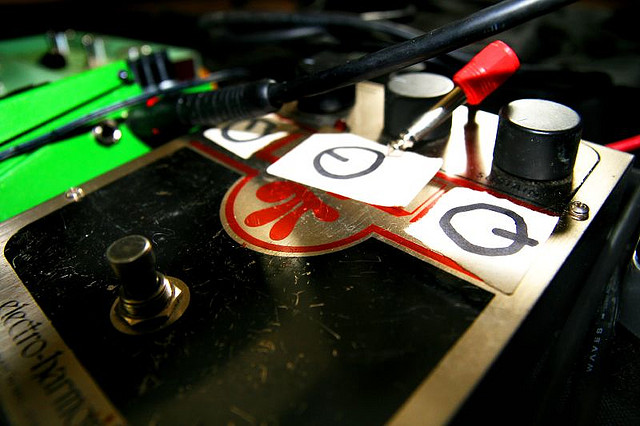The Loop Pedal

You may have already used a loop pedal yourself. If you have, you already know how much fun it is. If not, teaching improvisation to your students is the perfect time to use loops. It’s also a great tool for your class to learn how to use and part of why guitar playing is so much fun!
Loops?
How did loops make it into music? Think ostinato basslines – same concept – you just have a phrase that repeats. With a loop pedal, you have instant ostinato recordings.
A looper pedal is a machine, similar to a recording device, that records you playing your instrument and plays the track(s) back in a loop. Think about the possibilities: you can record a small chord progression, then have students try out little solo ideas. You can also layer multiple tracks and create an on-the-fly composition.
How it Works
• Connect your guitar to the input jack on the pedal
• Connect your pedal’s output jack to your amp
• Tap the pedal to start recording
• Rock out
• Tap again to stop recording
What It’ll Cost You
Which looper is right for you really depends on your unique needs. A basic looper can be found for $100-$150. But there are lots of machines with different, bells, whistles, and prices. But if your main goal is to give your students a few chord progressions to play to, it doesn’t need to be too fancy.
If you’ve got a bit more to spend, you can look into loop pedals with more bells and whistles. Multiple inputs would be a start.